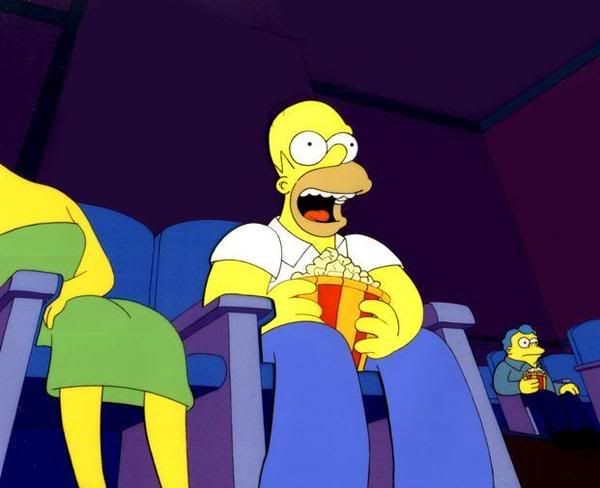Rii
Rear Admiral
So most of the following article from the BBC concerns African-Americans and their non-swimming ways, and that's certainly an interesting topic for discussion of itself, but it was a broader - albeit, related - statement which most caught my eye:
BBC: Why don't black Americans swim?
I admit I find the lemming-like quality of tragedy vaguely amusing in a macabre sort of way. At what point does it become clear that this approach simply isn't working?
I think a swimming pool is a rather elitist thing to have in one's backyard, but I don't see how that translates across to the activity/sport more broadly, particularly given that most backyard swimming pools are too small (or simply the wrong shape) to support more than recreational splashing about.
But maybe I'm entirely off-base here and swimming is right up there with sailing, horse riding and Formula One. What say you?
BBC: Why don't black Americans swim?
A month ago, six African-American teenagers drowned in a single incident in Louisiana, prompting soul-searching about why so many young black Americans can't swim.
When 15-year-old DeKendrix Warner accidentally stepped into deeper water while wading in the Red River in Shreveport, he panicked.
JaTavious Warner, 17, Takeitha Warner, 13, JaMarcus Warner, 14, Litrelle Stewart, 18, Latevin Stewart, 15, and LaDarius Stewart, 17, rushed to help him and each other.
None of them could swim. All six drowned. DeKendrix was rescued by a passer-by.
Maude Warner, mother of three of the victims, and the other adults present also couldn't swim.
I admit I find the lemming-like quality of tragedy vaguely amusing in a macabre sort of way. At what point does it become clear that this approach simply isn't working?

But according to the US Centers for Disease Control and Prevention, the fatal drowning rate of African-American children aged five-14 is three times that of white children.
A recent study sponsored by USA Swimming uncovered equally stark statistics.
Just under 70% of African-American children surveyed said they had no or low ability to swim. Low ability merely meant they were able to splash around in the shallow end. A further 12% said they could swim but had "taught themselves".
[....]
Some might assume the fundamental reasons would be lack of money for swimming lessons or living in areas where there were no pools, but the reality is more complex.
"Fear of drowning or fear of injury was really the major variable," says Prof Carol Irwin, a sociologist from the University of Memphis, who led the study for USA Swimming.
Typically, those children who could not swim also had parents who could not swim.
"Parents who don't know how to swim are very likely to pass on not knowing how to swim to their children," says Ms Anderson.
In focus groups for the study, Prof Irwin said many black parents who could not swim evinced sentiments like: "My children are never going to learn to swim because I'm scared they would drown."
The parents' very fear of their children drowning was making that fate more likely.
The major reason behind the problem could lie in the era of segregation says Prof Jeff Wiltse, author of Contested Waters: A Social History of Swimming Pools in America.
"The history of discrimination… has contributed to the drowning and swimming rates," says Prof Wiltse.
In his work he identified two periods of a boom in swimming rates in the US - in the 1920s and 1930s when recreational swimming became popular and the 1950s and 1960s when the idea of swimming as a sport really took off.
The first boom was marked by the construction of about 2,000 new municipal pools across the nation.
"Black Americans were largely and systematically denied access to those pools," he notes.
"Swimming never became a part of African- American recreational culture."
In the northern US that segregation in pools ended in the 1940s and early 1950s, but many white swimmers responded by abandoning the municipal pools and heading off to private clubs in the suburbs where segregation continued to be enforced.
"Municipal pools became a low public priority," he notes.
After the race riots of the 1960s, many cities did start building pools in predominantly black areas, says Prof Wiltse, but there was still a problem. Many of the new pools were small - often only 20 by 40ft (six by 12m) and 3.5ft (1m) deep.
"They didn't really accommodate swimming. They attracted young kids who would stand in them and splash about. There really wasn't an effort to teach African-American children to swim in these pools."
Although there are many poor or working class white children who cannot swim for similar reasons, swimming has gained an image as a "white sport".
"It is [seen as] a country club sport that only very rich kids get to participate in. The swimming pool is [seen as] a very elitist thing to have in your backyard," says Prof Irwin.
I think a swimming pool is a rather elitist thing to have in one's backyard, but I don't see how that translates across to the activity/sport more broadly, particularly given that most backyard swimming pools are too small (or simply the wrong shape) to support more than recreational splashing about.
But maybe I'm entirely off-base here and swimming is right up there with sailing, horse riding and Formula One. What say you?
Last edited:






